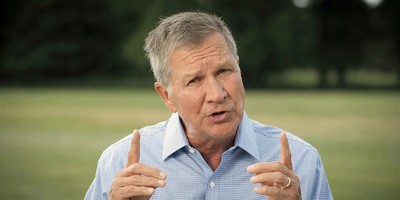Catholic Churches in the greater Philadelphia area where I live are eagerly preparing for Pope Francis’ visit to Philly.
While at Mass this Sunday, the officiating priest—who also happens to be a professor of “Christian anthropology” at a local Catholic university and a die-hard Pope Francis fan—gave a homily that provided me with some food for thought.
Christians, he said, are called upon to care for “the poor” and the most “marginalized” by “society.” We are called upon to care for those who can’t care properly for themselves.
On its face, this will doubtless strike many as nothing more or less than standard Christian teaching. Equally doubtless is that this is the stuff of which the contemporary homily or sermon consists.
But this is the problem.
Of course, Christians do indeed have a duty in Christ and to Christ to serve “the poor.” But this is only because Christians have a duty in Christ and to Christ to serve anyone and everyone who is in need.
This is a crucial point to grasp.
To hear my priest (and countless others just like him) tell it—and repeatedly tell it—unless a person can be lumped into one of the categories that he specifies, unless a person is among “the marginalized,” the disciples of Christ haven’t any obligation at all to that person, or at least no obligation to attend to the person’s needs.
In other words, as a Christian, do I not have a duty to care for the powerful, the wealthy, and the healthy, for those who are recognized, respected, and even celebrated by society? Christian clerics like my priest from this Sunday would have me think not.
This is not a matter of being sophistic or otherwise deliberately obtuse, for Christian clerics—whether Catholic priests or Protestant ministers (but especially the former)—never, ever talk about loving the rich and mighty. Never. To the contrary, the latter are spoken of critically, sometimes to the point of demonization.
Recommended
Certainly it’s the case that clerics remind disciples of the duty to “visit the imprisoned,” but either implicitly or explicitly, the imprisoned are linked to “the poor.” In impressing this connection upon their congregants, ministers seek to ensure that the often brutal, horrific circumstances that lead to the long-term imprisonment of most prisoners escape the minds of their flocks.
Also, by identifying prisoners with “the poor,” Christian leaders inculcate feelings of sympathy, and possibly even of guilt, by suggesting that convicted criminals are actually victims of a cruel, un-Christian society that has “marginalized” them.
The implication of this message that contemporary Christian ministers routinely drill into the brains of their congregants is that poor murderers and rapists are more deserving of compassion and empathy than are rich CEOs.
The Bible, neither the Old nor the New Testaments, supplies no support for this lopsided vision that prevails in so much of contemporary American Christianity. King David, for example, was both super wealthy and powerful, and yet he is a great Biblical hero, a man after God’s heart. King Solomon was the richest of men—and also among the wisest. Solomon is no less great in stature than was his father.
When God went in search of a House in which to dwell on Earth—i.e. the Temple—it is to the super wealthy and powerful that He turned.
These are just two of the more notable illustrations of the profoundly wealthy and powerful among God’s blessed.
In the New Testament, Jesus attends to the needs of the rich and powerful as well as to those of the poor. The Roman soldier whose servant Christ saves is an agent—and a symbol—of the most powerful empire the world had ever known until that juncture. He also had to have been a man of considerable means if he was able to afford a servant.
Jesus also satisfied the needs of some of the movers and shakers of His day, specifically members of the Sanhedrin. The latter was the council of religious leaders that arranged to have Him executed by Rome, but Nicodemus and Joseph of Arimathea were among its member that became Christ’s disciples. They pleaded for Christ’s life and when such pleadings failed, it was Joseph who secured the tomb in which Jesus’s body was laid.
Christ commissioned His apostles to make disciples of all nations, not just poor nations, and not just poor people. His apostles listened and endeavored to spread the Gospel to all, rich and poor, powerful and powerless, Jew and Gentile. The tacit and sometimes not so tacit class warfare that today’s pulpit warriors seem fond of waging on Sunday mornings is one form of war with respect to which Jesus and His Apostles were pacifists.
There is another problem with this exclusive focus on “the poor” and “marginalized.”
It is all too easy for Christians to neglect caring for their next door neighbors, relatives, and friends—with those with whom they are closest but whom are not materially “poor” or societally “marginalized.” As long as they deploy some of their resources in time, energy, and money (but mostly money) to those beneath some bureaucratically-constructed poverty line, or some abstract category singled out by their ministers, it promises to be all too easy for them to rest assured that they’ve fulfilled their duties to Christ without further ado.
I suggest that, if we really want to encourage Christian charity, we drop (the excessively materialistic) references to serving “the poor” in favor of those to “the needy.” Everyone is needy is some respects.
Christians are called upon to attend to the “needs” of all—not just “the poor.”

























Join the conversation as a VIP Member